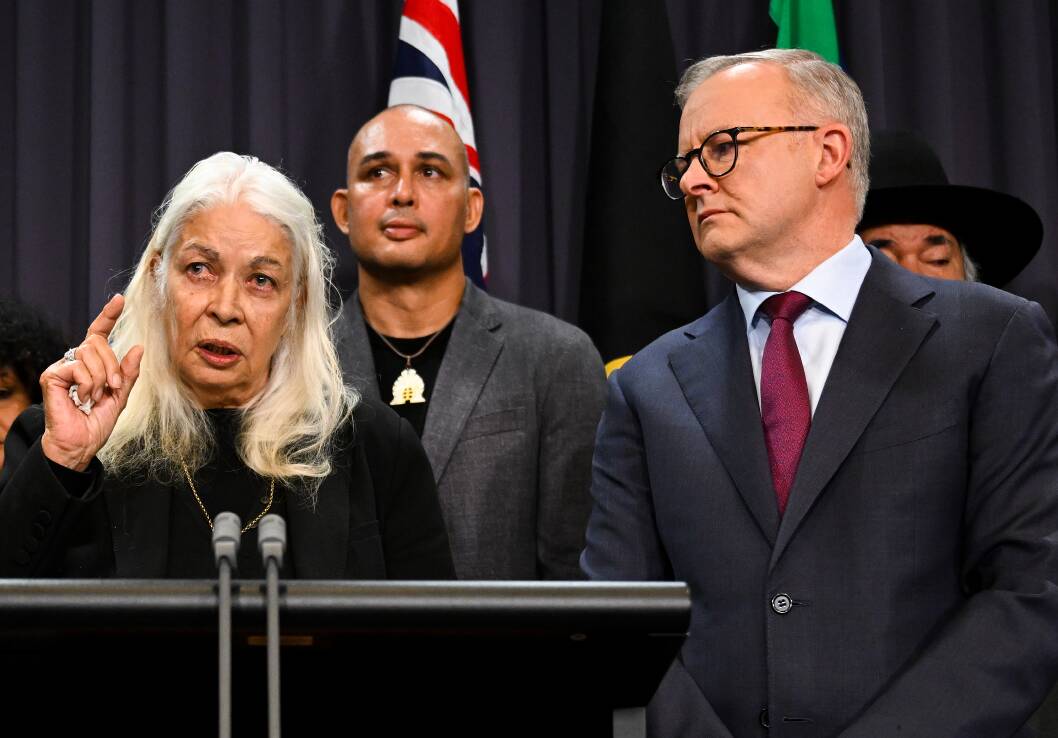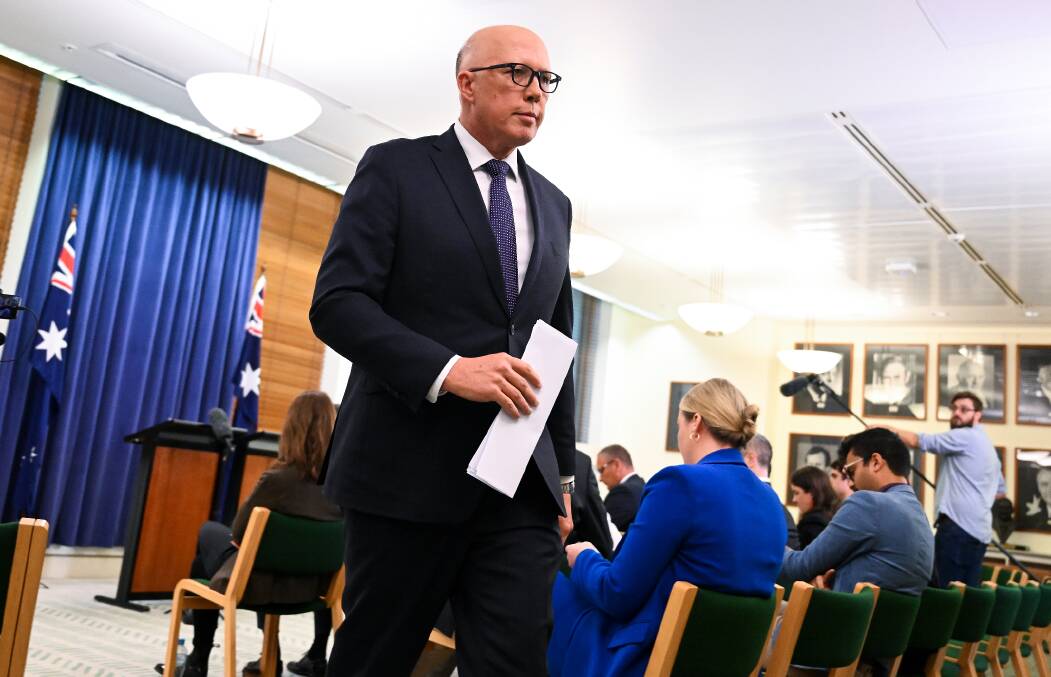
THE emotion was unmistakable on Thursday when Prime Minister Anthony Albanese unveiled the wording of the Voice to Parliament referendum.
The language is clear and unambiguous: "A proposed law to alter the Constitution to recognise the first people's of Australia by establishing an Aboriginal and Torres Strait Islander Voice. Do you approve this proposed alteration?"
It has taken decades of debate to reach this point, and while the Yes camp has every reason to believe it is on the right side of history, supporters cannot dismiss every objection that arises as fake news, misinformation, racism or scaremongering.
Principles are important, but parliament is about passing laws, and the wording of any law - much less a change to the Australian constitution - is crucial.
The Voice's provisions clarify that the new body will exist to "make representations to the parliament and the executive government on matters relating to the Aboriginal and Torres Strait Islander peoples".
There should be little controversy over this.
A Voice that did not have the power to make representations to ministers would be no voice at all.
The Voice will speak for the Aboriginal and Torres Strait Islander community, but parliamentarians elected to represent the whole nation will determine the scope of its powers.
It will not be a "third chamber". If agreed to, it will be a Voice to parliament, not a part of it.
Regardless of the political debate, the ultimate decision rests with voters.
The Parliamentary Education Office says there have been 19 referendums since federation, with only eight of 44 proposed changes to the constitution approved.
This meagre strike rate shows an embedded reluctance toward major change, and Mr Albanese knows he has a big job on his hands if he is to be remembered as the leader who helped heal this nation heal its deepest wounds.
While we are not the only country with a colonial hangover to deal with, we lag behind some other nations in addressing this history.
A Yes vote will lift our reputation internationally.
A No vote would leave us uncomfortably open to branding as a nation of hypocrites.
But to ensure success, the Yes camp must look to why such Indigenous advocates as Senator Lidia Thorpe believe a treaty or Makarrata needs to come first.
Or why Senator Jacinta Nampijinpa Price wants a focus on more immediate concerns, including a breakdown of law and order in the Northern Territory and the abuse of Indigenous women and children.
Their dissent is heartfelt, and deserves consideration.
Ultimately, however, the view expressed by Indigenous Affairs Minister Linda Burney - joined in solidarity by her Liberal predecessor Ken Wyatt - is the one that counts.
As Ms Burney says: "If not now, when? We have been talking about recognising Aboriginal and Torres Strait Islander Australians for in our founding document for decades.
"Now we have a chance to do that."
ISSUE: 39,864

To see more stories and read today's paper download the Newcastle Herald news app here.







